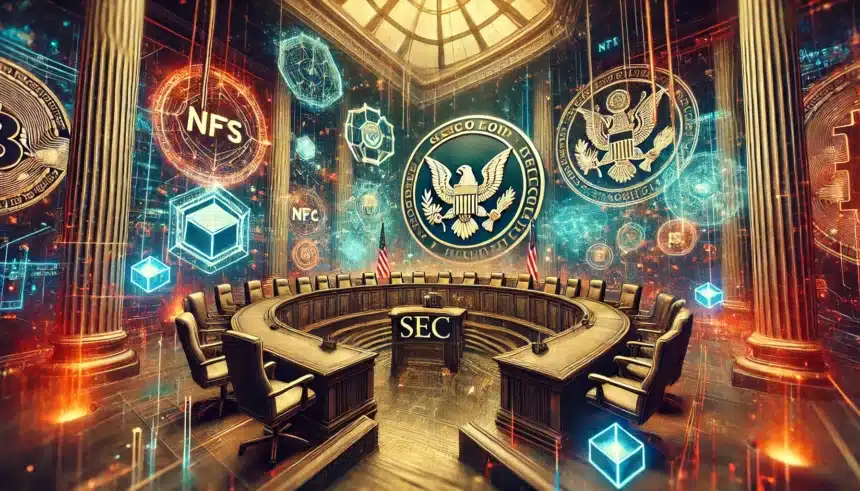About NFT On July 30, the Law Commission of England and Wales released its final report recommending that the UK government reclassify all crypto assets as a new form of personal property, as reported by the news sources. This report, issued by an independent body that reviews and recommends law reforms, allegedly highlights the current legal inadequacies in the classification of personal property concerning crypto assets.
The commission noted that the existing legal framework lacks the necessary flexibility to recognize and protect digital assets effectively. This limitation supposedly creates uncertainties in the legal treatment of crypto assets and their ownership rights. The commission suggested that introducing a distinct category of personal property specifically for digital assets could address these gaps. By doing so, the legal system would be better equipped to handle the complexities of digital assets, such as cryptocurrency and NFTs, which do not fit neatly into existing property categories.

The proposed reclassification aims to provide a clearer legal structure, offering better protection for digital asset owners and ensuring that their rights are adequately safeguarded. This move would also align the UK’s legal framework with the evolving nature of digital technology, potentially fostering a more robust environment for innovation and investment in the digital asset space.
FTX Class Action Lawyers Challenge the Dismissal Motion
On July 29, FTX class action lawyers reportedly filed a motion opposing the dismissal motion put forth by the law firm Sullivan & Cromwell (S&C). The lawyers accused S&C of exceeding standard legal practices in its handling of the case related to the now-defunct cryptocurrency exchange.
The court documents allegedly reveal that the class action lawyers allege that S&C’s legal strategies contributed to FTX’s fraudulent activities. Specifically, the lawyers claim that S&C created misleading strategies that facilitated FTX’s misconduct. They argue that these strategies were not only unethical but also contributed significantly to the damage suffered by FTX’s investors. The ongoing lawsuit seeks substantial damages for aiding and abetting fraud, fiduciary breaches, and civil conspiracy. The plaintiffs aim to hold S&C accountable for its alleged role in furthering FTX’s unlawful activities and to secure compensation for the financial losses incurred.
Expanding Secret Service Powers for Crypto Crime
On August 2, Senators Catherine Cortez Masto of Nevada and Charles Grassley of Iowa reportedly introduced the “Combatting Money Laundering in Cyber Crime Act of 2024.” This bill aims to enhance the Secret Service’s authority to address crypto-related criminal activities.
If enacted, the bill would grant the Secret Service the power to investigate cryptocurrency transactions involving unlicensed money-transmitting businesses. Additionally, it would enable the agency to probe potential fraud affecting US financial institutions, bringing such activities under federal law enforcement’s purview, as suggested by the experts.
Artists Sue SEC Over NFT Security Status
On July 29, two artists reportedly filed a lawsuit against the US Securities and Exchange Commission (SEC) seeking clarification on whether non-fungible tokens (NFTs) fall under the agency’s regulatory scope. The lawsuit aims to determine the specific conditions under which NFT creation and sales could trigger US securities laws. The artists argue that the lack of clear guidelines creates legal uncertainty and impedes their ability to conduct business confidently.

According to the news sources, they are requesting a formal opinion from the SEC on whether their NFT creations are considered securities and, therefore, subject to registration requirements and other regulatory obligations. The outcome of this lawsuit could set a precedent for how NFTs are treated under US law and could impact how artists and other stakeholders approach the creation and sale of digital assets.
The plaintiffs allegedly argue that the current regulatory uncertainty surrounding NFTs creates confusion for creators and buyers alike. They seek definitive guidance on whether NFT art needs to be registered with the SEC before it is sold and whether there are requirements for public disclosures related to potential risks associated with NFT transactions. The outcome of this lawsuit could have significant implications for the future of NFT regulation and how artists engage with these digital assets. Want to keep up with the NFT arena? Stay tuned with TheBITJournal.




























